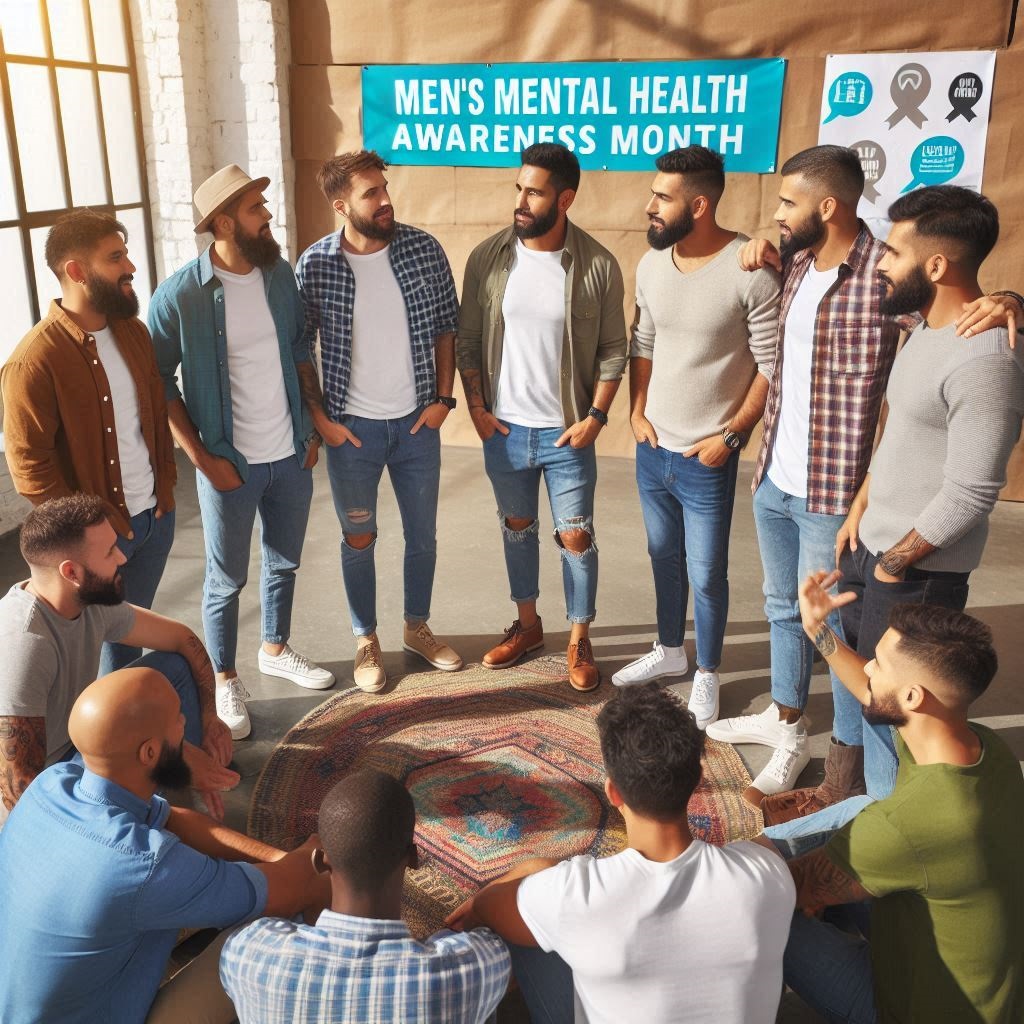Men’s Mental Health

Break the Silence and Embrace Healing.
Men’s Mental Health Month is June, an important month to raise awareness of a topic that is frequently disregarded. Although stigmas and societal expectations often keep men from getting the mental health treatment they require, mental health issues are a global concern. This article explores the significance of men’s mental health by showcasing individual accounts from around the world that emphasize the commonality of mental health issues and the importance of getting treatment.
The Silent Struggle
Men’s mental health issues are pervasive yet frequently underreported. Societal norms often dictate that men should be strong, stoic, and self-reliant, leading many to suppress their emotions and avoid seeking help. This can result in devastating consequences, including higher rates of suicide among men compared to women. According to the World Health Organization (WHO), suicide rates are significantly higher in men, who often feel that seeking help is a sign of weakness.
Stories of Courage and Recovery
1. John’s Journey – United States
John, a 34-year-old Chicago firefighter, spent years battling anxiety and depression. His mental health suffered as a result of the demands of his work and the need to maintain his composure. Through therapy, John found comfort in the knowledge that vulnerability was a strength rather than a weakness. His experience serves as a testament to the value of seeking assistance and the advantages of doing so.
2. Anil’s Awakening – India
Anil, a software engineer from Bangalore, experienced severe burnout and depression due to the demanding nature of his work. In India, mental health is often a taboo subject, especially for men. Anil’s turning point came when he attended a mental health workshop at his company, which encouraged him to seek counseling. Through therapy, he learned effective coping mechanisms and the importance of maintaining a work-life balance. Anil now advocates for mental health awareness in his community, hoping to break the stigma.
3. Ahmed’s Triumph – Egypt
Ahmed, a university student in Cairo, battled with anxiety and panic attacks. In a society where discussing mental health is often frowned upon, Ahmed felt isolated and ashamed. His breakthrough came when he connected with an online support group where he found others with similar experiences. Ahmed’s story highlights the power of community and the importance of creating safe spaces for men to share their struggles.
4. Brazil – Lucas’s Liberation
Lucas, a São Paulo-based professional athlete, experienced extreme anxiety and sadness as a result of the pressure to succeed. It felt hard to disclose mental health issues in the macho world of sports. Lucas did, however, seek assistance from a sports psychologist following a public breakdown. After a gradual but steady road to recovery, he now uses his position to promote mental health awareness in athletics, stressing the significance of mental health on par with physical health.

The Path Forward: Encouraging Open Dialogue
The stories of John, Anil, Ahmed, and Lucas illustrate the universal nature of mental health struggles and the transformative power of seeking help. Here are some steps we can take to support men’s mental health:
- Promote Open Discussions: It’s important to create spaces where men feel comfortable expressing their feelings without fear of being judged. Stigma related to mental health can be decreased by encouraging honest discussion about it in the home, at work, and in schools.
- Provide Access to Resources: It can make a big difference to make sure that mental health resources are both affordable and easily accessible. Information regarding counseling, support groups, and hotlines is part of this.
- Advocates and Role Models: When prominent people and influencers talk about their experiences with mental health, it might encourage others to get treatment. Their experiences help dispel prejudices and demonstrate that it’s acceptable to solicit assistance.
-
Education and Awareness: Educational programs that focus on mental health literacy can empower men to recognize the signs of mental health issues and understand the importance of seeking help.
-
Be There: Sometimes, the best support is simply being there for someone. Listen without judgment and offer your support.
Men’s Mental Health Month serves as a timely reminder that everyone, regardless of gender, needs to prioritize their mental health. We can encourage men everywhere to ask for assistance and stand by one another by telling each other’s tales of resiliency and optimism. By working together, we can end the stigma, shatter the taboo, and establish a society that values and prioritizes mental health.





Responses